掲示板 Forums - す Form & Other Verb Types
Top > 日本語を勉強しましょう / Let's study Japanese! > Anything About Japanese > Grammar Library Talk Getting the posts
Top > 日本語を勉強しましょう / Let's study Japanese! > Anything About Japanese > Grammar Library Talk
Is there any explanation for verbs such as 出す / だす which is not listed as either ichidan or godan?
The part of 日本語 that I struggle with the most currently is verb conjugation, which I had thought I was finally starting to understand, before I noticed verbs that are neither ichidan or godan verbs (excluding the normal 2 exceptions of する and 来る)
I couldn't find any grammar entry for these, so any explanation of how the grammar for these strange verbs work would be appreciated. 
する and くる are the only irregular verbs in japanese.
Every verb that does NOT end in ru is godan.
Every verb ending in -aru, -oru or -uru is godan.
So only -eru and -iru verbs can be ichidan at all. For those you need to memorize. They are either ichidan or godan. There are no verbs that are neither.
Try to get a pdf table with the verb conjucations. All possible conjugations of all verb-variations fit on one page. I find that encouraging. You don‘t need to learn everything at once though. Yet it‘s nice to see that. 🤓
する and くる are the only irregular verbs in japanese.
Every verb that does NOT end in ru is godan.
Every verb ending in -aru, -oru or -uru is godan.
So only -eru and -iru verbs can be ichidan at all. For those you need to memorize. They are either ichidan or godan. There are no verbs that are neither.
Try to get a pdf table with the verb conjucations. All possible conjugations of all verb-variations fit on one page. I find that encouraging. You don‘t need to learn everything at once though. Yet it‘s nice to see that. 🤓
Thank you, that was what I had thought. I've been working on trying to memorize all the basic conjugation forms for the two types.
The confusion is because Renshuu has certain verbs labeled as neither. Ex:
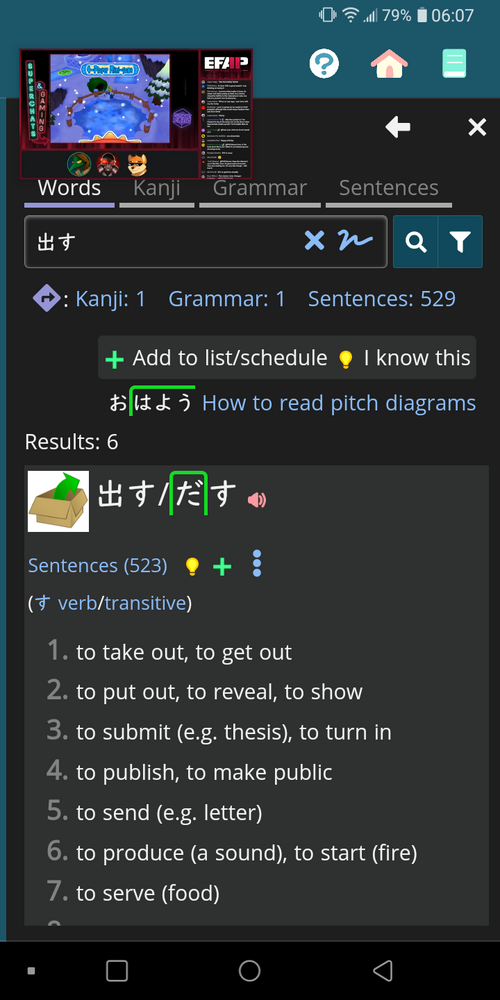
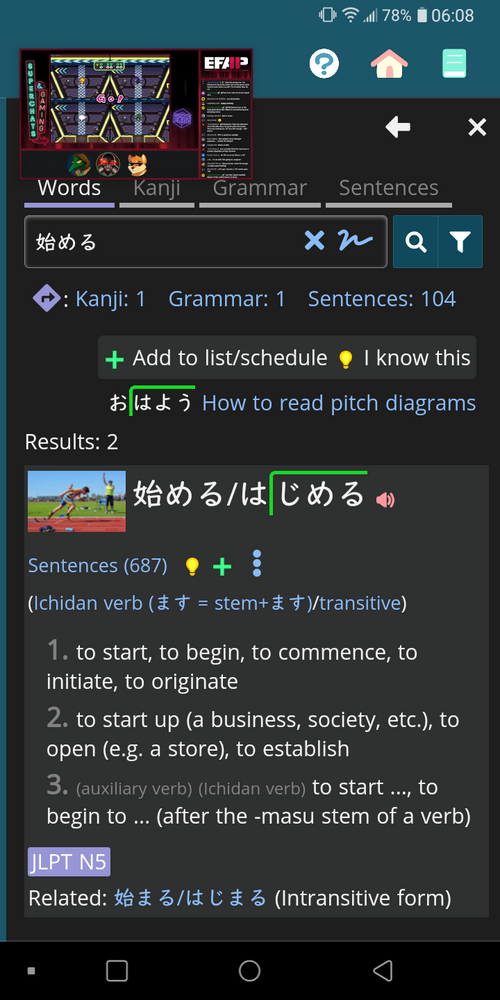
While most verbs, such as 始める (second pic) are labeled as godan verb or ichidan verb, but a couple I've seen (most recently 出す), do not have either label on them.

See, certain verbs are given 'random' labels, for seemingly no reason, while the majority are labeled as ichidan verb or godan verb.
Ex: "su verb" or "special ru verb", rather than "godan verb - su" or "? verb - ru"
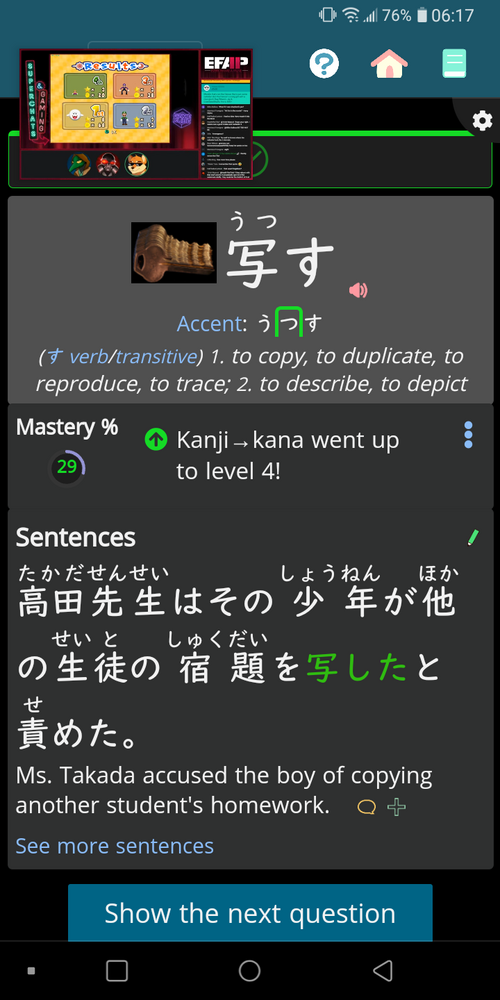
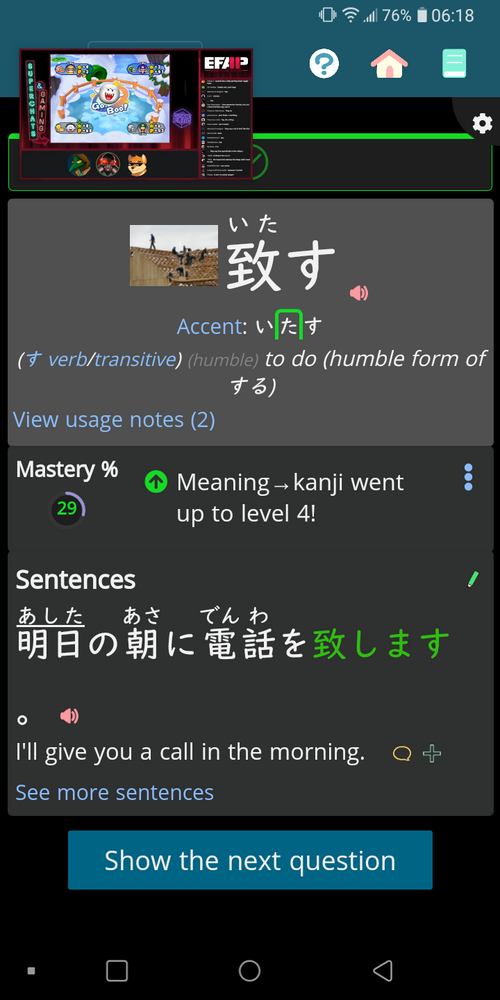
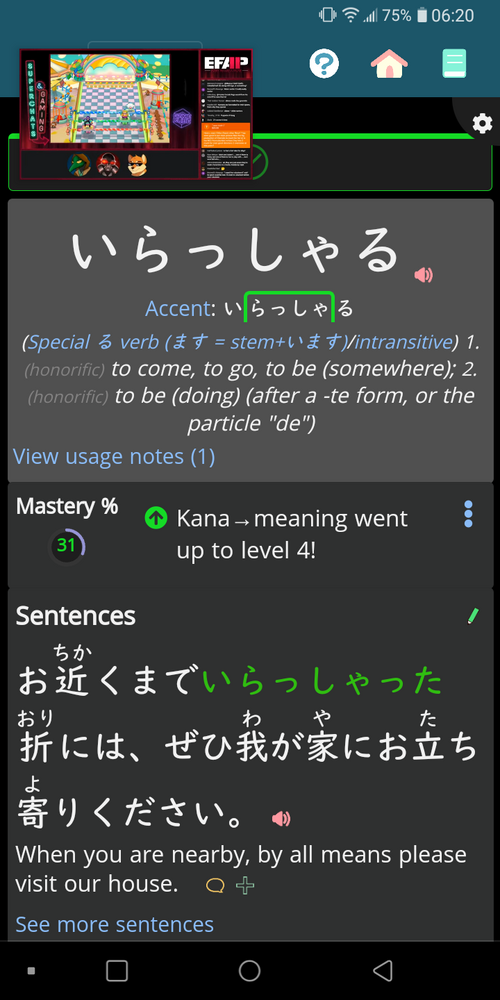
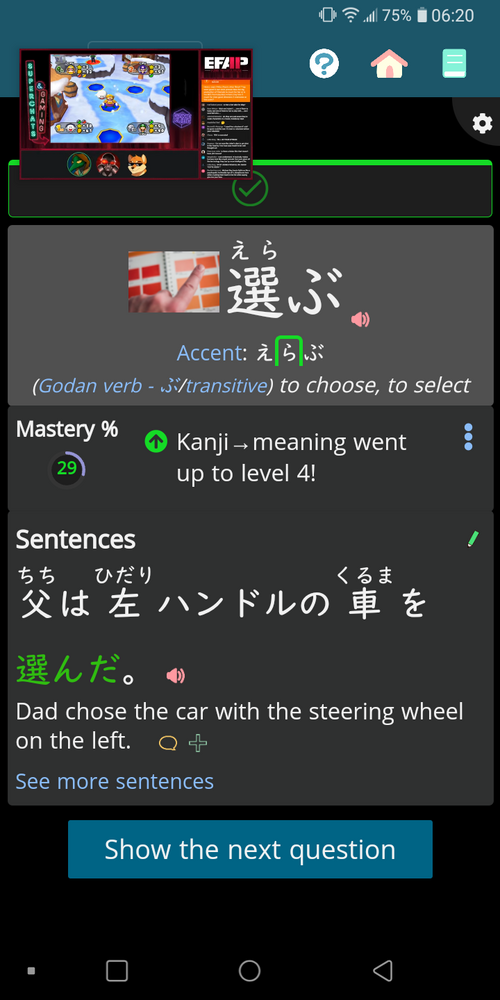
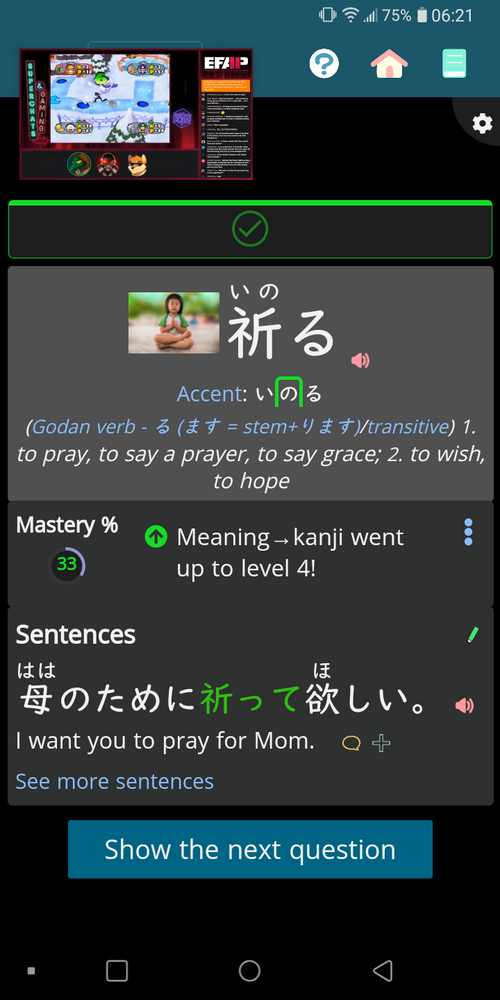
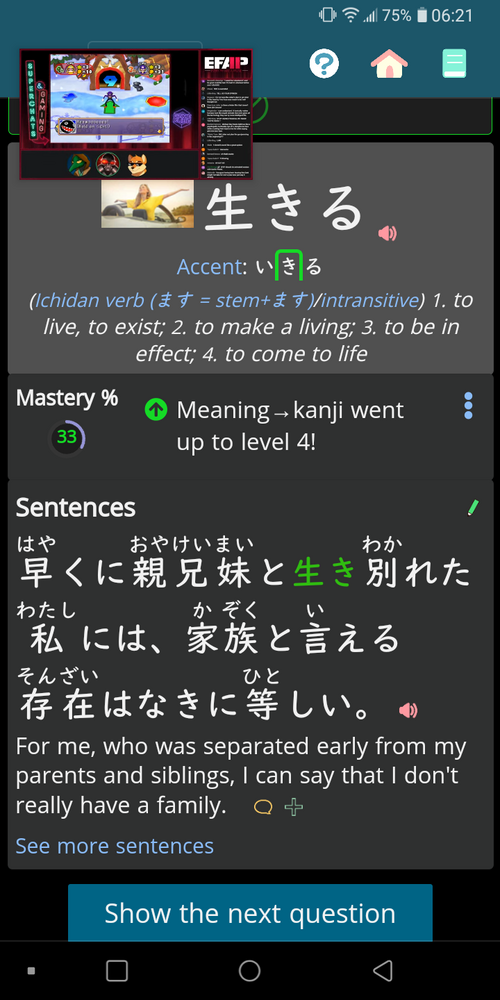
If there are only 2 exceptions to the 'ichidan / godan' groupings, which is the only thing I've heard or read anywhere, then why are some verbs labeled in these weird ways? And, if they are going to have the weird labeling, as though they are exceptions to 'ichidan / godan', then there should be at least one grammar lesson covering them to explain why... (If there is, I cannot find it.)
The dictionary is not made by renshuu, but imported. There, it seems to not obey a labeling pattern in a 100% of all cases. Well… it‘s free.
いらっしゃる is one of three honorific verbs that has an irregular -masu form and an irregular imperative. (いらっしゃる、なさる、ござる)
But I guess, they are usually not mentioned, because they are used basically as fixed, unchangeable vocabulary… kind of.
And while a honorific imperative is grammatically possible, it‘s not logical to use.
So, I would suggest to ignore that until you actually need to or want to handle those words. 🙂 And if you want to dive into these details, try „A Dictionary of Basic Japanese Grammar“. That book and its intermediate and advanced successors are pretty detailed. 😊
The dictionary is not made by renshuu, but imported. There, it seems to not obey a labeling pattern in a 100% of all cases. Well… it‘s free.
いらっしゃる is one of three honorific verbs that has an irregular -masu form and an irregular imperative. (いらっしゃる、なさる、ござる)
But I guess, they are usually not mentioned, because they are used basically as fixed, unchangeable vocabulary… kind of.
And while a honorific imperative is grammatically possible, it‘s not logical to use.
So, I would suggest to ignore that until you actually need to or want to handle those words. 🙂 And if you want to dive into these details, try „A Dictionary of Basic Japanese Grammar“. That book and its intermediate and advanced successors are pretty detailed. 😊
Thanks for the book rec and info.
(Just by the way, I wasn't trying to say the weird stuff was the fault of Renshuu, just that the dictionary used by Renshuu had that strange distinction I've not seen anywhere else. I know from past stuff that Michael can only do so much, in terms of the dictionary stuff, anyways, so I wouldn't blame them regardless. Just in case.)